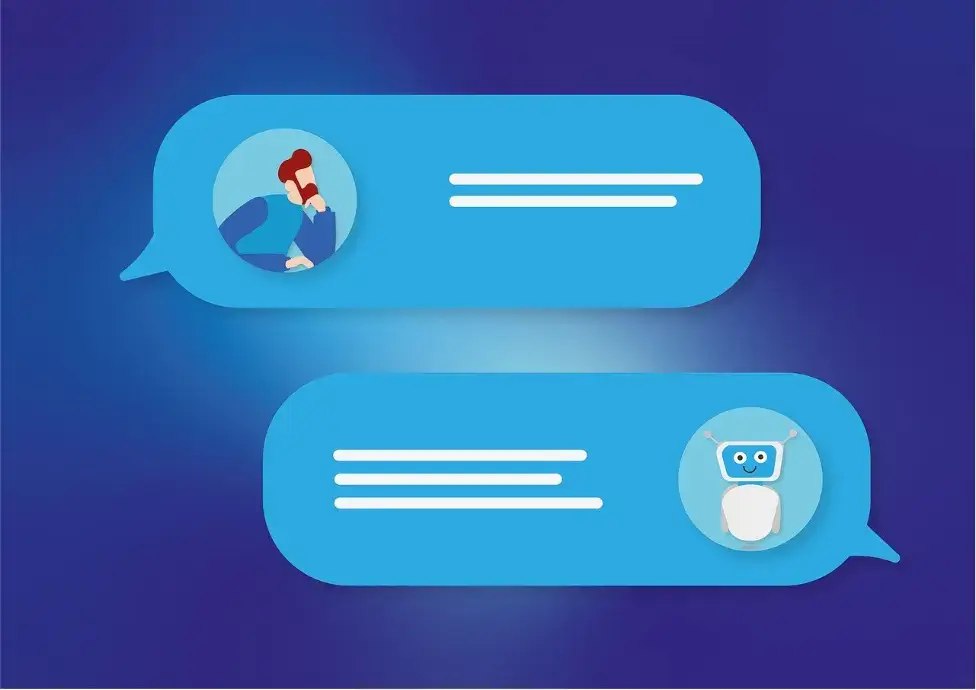Most businesses aim to boost sales and growth for long-term success and financial stability. But this is often more challenging for small business owners.
Smaller businesses often need more work and extra time to ensure their company survives past the first few years. It is now easier with certain technological advances, such as artificial intelligence (AI).
Many small business owners handle the majority of operations themselves, but with AI, you can reduce your workload by having AI take care of specific tasks for you.

Image Source: Pixabay
AI is revolutionizing many various industries. It is also beneficial for those smaller companies that don’t quite have the finances or resources yet to employ a large staff to handle operations.
Using AI for repetitive tasks will free up time for essential tasks, enabling you to increase sales and grow your business to hire more people eventually.
The Rise of AI
Once a seemingly far-fetched futuristic concept, AI is rapidly becoming a significant part of our society.
Businesses, in particular, across numerous industries are utilizing AI in various innovative ways to improve their operations and run more efficiently.
The real estate industry is greatly benefiting from AI, for example. Most real estate agents operate like small business owners, wearing several hats to keep their businesses running.
So AI can help them ease their workloads and optimize their operations. ChatGPT, an AI tool, can help agents gather data points that can significantly improve workflow and output, such for things as:
- Market analysis and forecasting real estate trends;
- Property valuation;
- Portfolio management;
- Investment strategies;
- Regulatory compliance;
- Tenant screening and management;
- Customer service;
- Risk assessment.
Another example of an industry that AI is transforming is insurance underwriting. Many insurance agents also operate independently, meaning they run their businesses and handle all operations themselves.
Insurance work is about numbers and accuracy, which AI tools are adept at handling.
For example, AI-powered predictive analytic tools can help agents better understand risk and provide real-time data when customizing customer policies.
It enables customers to have more flexible coverage options and lower their premiums.
AI-powered tools also help eliminate bias in insurance underwriting to create a more equitable system.
For example, AI can make better decisions without being affected by concepts like race, gender, age, and ethnicity. It also allows for greater transparency, so insurers can create fair policies and better adhere to practice standards.

Image Source: Pixabay
How AI Can Assist Small Businesses
The above examples are just two of the many different small business industries affected by AI.
As a small business owner yourself, you’ll need to assess your individual needs and the needs of your business to determine where and how you can implement AI to help you run more optimally.
1. General operations and workflow
As a small business owner, you likely wear many hats and have to tackle several things in one day. But AI can help you simplify your operations so you can spend more time on the more significant tasks requiring more attention.
For example, if you have daily, repetitive tasks that take up your time but aren’t that hard to do, like invoicing, data entry, and other administrative tasks — those are all things an AI-powered system or tool can take over for you.

Image Source: Unsplash
2. User experience (UX)
User experience (UX) is essential to run a successful business. It focuses on providing the customer with a better experience and DTC customer relationship—whether through the product itself or the purchasing journey.
And when your customer has consistently better experiences interacting with your products or services, your sales will increase.
However, handling UX as a small business can be challenging, especially if you don’t have the money to hire an entire UX team unless you have AI.
Suggested reading: What Are the Five Stages of Small Business Growth?
AI enables UX designers to create more personalized experiences by analyzing more data.
It also allows you to create more streamlined user experiences and help you develop more innovative designs for user interactions.
AI can also help make the user experience more secure to avoid privacy issues and stolen data.
With AI, you can do more with less. If you can only hire one person to handle your UX, they can do more with the help of AI instead of requiring the support of an entire UX team.
3. Product design
Delivering a quality product is essential for all businesses, especially small ones. You have less room for error as a small business and need to prove yourself more quickly to garner attention and a loyal following of customers. And AI can help you achieve this.
AI enables you to improve your products so your customers are more satisfied significantly. Specifically, AI can help with product personalization.
Though your business might be your passion, your products should ultimately be about your customers and their needs, not about you.
AI-powered tools can help you analyze greater amounts of customer data, such as purchase history, real-time feedback, demographics, trends, pain points, and browsing history.
You’ll be able to create products with this information in mind to deliver more of what customers want.
4. Email marketing
One of the many hats that small business owners wear is that of a marketing expert. Unfortunately, not all small business owners know the best marketing practices.
But with a solid marketing strategy, you can attract customers.
Email campaigns, for example, are still critical for generating leads and retaining customers. But instead of struggling to create attractive and eye-catching emails, you can use AI to craft your emails.
AI tools can automate personalized subject lines, craft emotionally intelligent messaging, and curate email content for targeted audiences.
Marketing teams using AI Humanizer transform automated email content into natural, conversational messages that build authentic customer relationships.
By analyzing and rewriting text, AI Humanizer helps create emails that feel more personal and engaging. This leads to stronger, more authentic connections with customers.
You can also use AI to analyze how successful your email campaigns are so you can make adjustments going forward as needed.

Image Source: Pixabay
5. Lead generation
Lead generation is vital to boosting sales. As a small business, this is another area where you need help.
Simply put, it’s harder to gain attention as a small business, but if you fail to generate leads, you might not make the sales you need to stay in business very long.
It is another aspect of operations that AI can assist with. AI can help identify which leads are more likely to convert to sales.
You can use AI-powered chatbots to engage visitors to your e-commerce site, which can help convert them. You can analyze customer behavior, which can help you personalize your marketing.
In Summary
As a small business owner, there should be no doubt about implementing AI into your operations. It’s no longer a question of should you, but how. Yes, you need AI, but knowing how to use it will depend on your needs.
So take the time to assess and determine where Ai can be most beneficial to you. There’s also no need to switch everything over to AI all at once. It’s better to take your time and ease yourself in to avoid any issues that might set you back.

